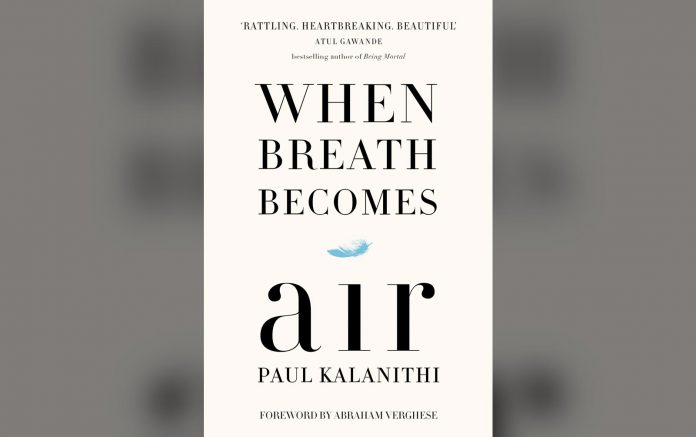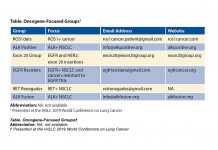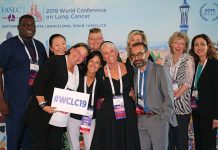By Lori Alexander, MTPW, ELS, MWC
How does a person with stage IV lung cancer live a meaningful life? That’s the question Paul Kalanithi explores in When Breath Becomes Air, the number 1 book on the New York Times Best Sellers list. Kalanithi’s moving and honest reflection of his life as he transforms from physician to patient resonates with both oncologists and patients alike.
Kalanithi is a brilliant neurosurgical resident and only 36 years old when stage IV lung cancer is diagnosed, a diagnosis that he notes is given to only 0.0012% of people his age. But statistics have a different meaning for him now that he has become one, he writes. Once so sure of his career plan—20 years as a surgeonscientist and 20 years as a writer—he now wrestles with how to live out the rest of his days, especially given the uncertainty
of how many days he actually has. He craves a specific prognosis, but his oncologist persists in not giving him one, instead repeatedly telling him, “You have to figure out what’s most important to you.” Is this the best approach?
“The statistics can never say how long an individual will survive. To give a limit
on survival can mean taking away what an individual can be or do, and it can be wrong. Patients must find their own truth and meaning, and all doctors can do is to help frame that,” says Tracey Evans, MD, Associate Professor of Clinical Medicine, University of Pennsylvania. Heather Wakelee, MD, Associate Professor of Medicine, Stanford University Medical Center, agrees. “It would be so much easier if we could tell people how much time they have, but we can’t, and helping people learn to live with uncertainty is one of our great challenges.”
In justifying his need for knowing the prognosis, Kalanithi writes, “The way forward would seem obvious, if only I knew how many months or years I had left. Tell me three months, I’d spend time with family. Tell me one year, I’d write a book. Give me ten years, I’d get back to treating diseases. The truth that you live one day at a time didn’t help: What was I supposed to do with that day?” In the end, Kalanithi goes back to his surgical residency, valiantly working to fulfill the requirements for graduation from his residency. And he and his wife Lucy decide to have the child they have always wanted.
“Is it better to overestimate, underestimate, or leave it open?” asks Dr. Evans. “It was clear Paul knew the statistics, yet the information provided by his oncologist still carried so much weight. I find this so incredibly humbling.”
Kalanithi’s struggles with a cancer diagnosis go beyond trying to identify his values. “The curse of cancer created a strange and strained existence, challenging me to be neither blind to, nor bound by, death’s approach,” he writes. “Even when the cancer was in retreat, it cast long shadows.”
Living in the shadow of a cancer diagnosis raises unanswerable questions for patients. “After my third-line treatment, when I achieved no evidence of disease (but unsure of how long it might last), I found myself wondering why I found effective treatment when so many others died. It made me question why I was here and how I could make the best use of my
gifts in the days remaining to me,” says Janet Freeman-Daily, now a lung cancer advocate and creator of the website, Gray Connections: Perspectives on Lung Cancer, Brain Science, and Other Stuff. “Facing the very real possibility of death in the near term changes one’s perspective on life,” adds Freeman-Daily. “The Western world is obsessed with denying
death as long as possible, yet the reality is that we will all die. Lung cancer forces one to confront that fact and accept that one’s time on earth is limited. It’s oddly freeing, enabling me to live in the joy of the moment and cherish whatever time I’ve been given. Yet, I sometimes feel regret for the things cancer and its treatmenthave taken from me.”
Physicians feel this regret as well. “I treat patients with cancer every day, and I am acutely aware of what cancer steals from the individual with the illness and their loved ones,” says Dr. Evans. “Paul’s writing makes that all the more apparent. No one is left untouched by cancer because…amazing individuals like Paul are taken from us. He would have contributed so much as a neurosurgeon, a physician, and a writer. All we have to offer did not allow Paul to live, to give us years as a practicing physician or loving father. However, I then realize that even the seemingly small accomplishments matter. The targeted treatment Paul received did not give him decades, but it gave him time to become a father and to write this book.”











